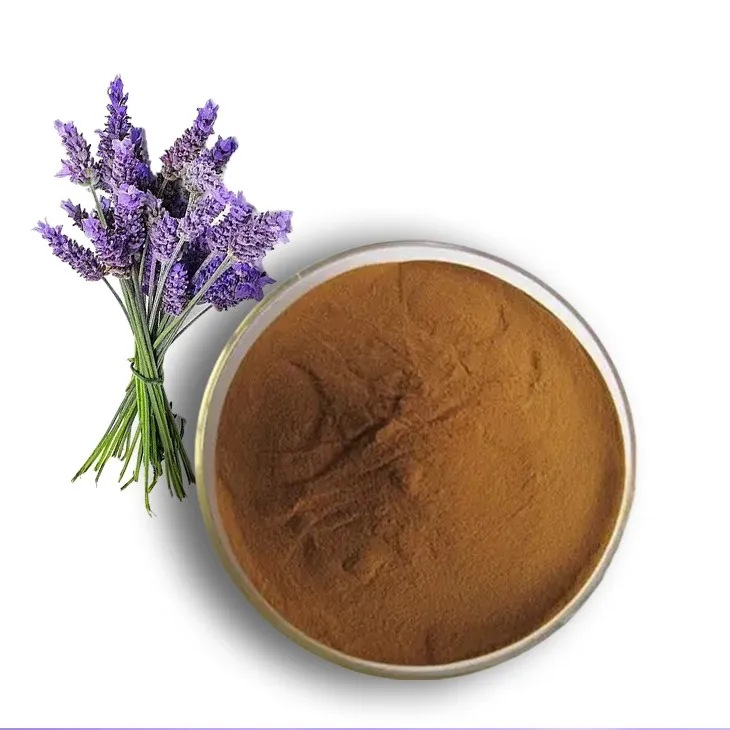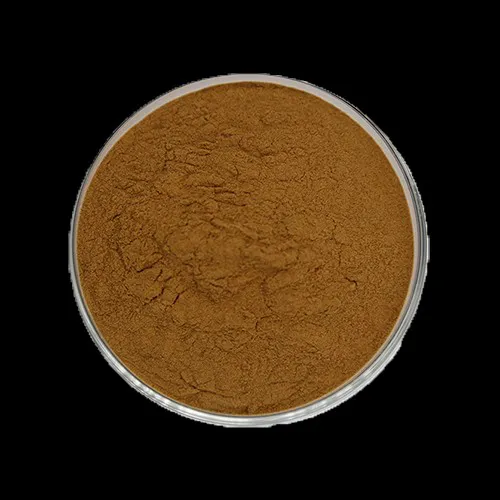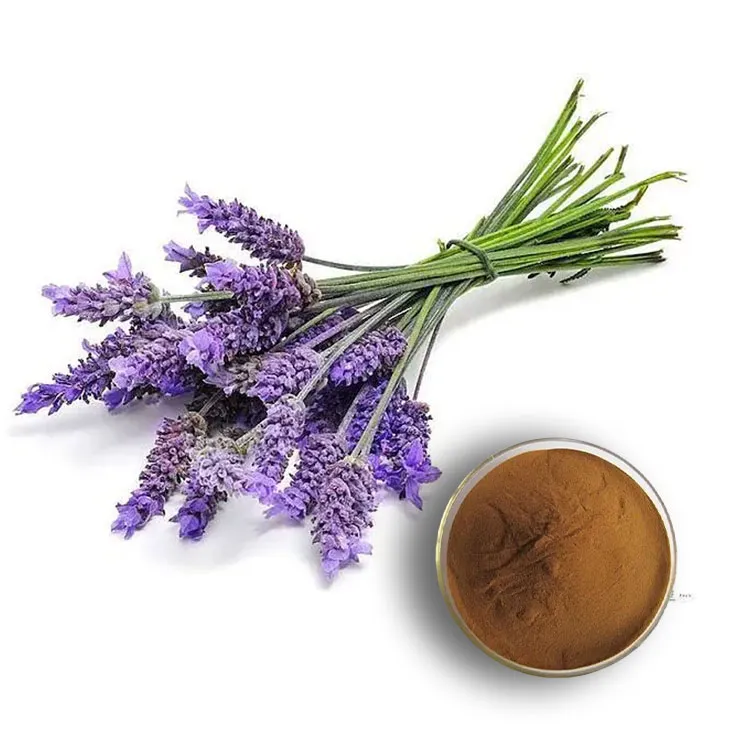- 0086-571-85302990
- sales@greenskybio.com
How do lavender extract manufacturers formulate strategies to launch new products to the market?
2024-12-10

1. Introduction
In the competitive market of Lavender Extract products, launching new products successfully is a challenging yet rewarding endeavor for manufacturers. A well - formulated strategy is crucial, which involves multiple aspects such as innovation, regulatory compliance, and customer engagement. This article will explore in detail how Lavender Extract manufacturers can develop effective strategies for new product launches.

2. Innovation in Product Development
2.1 Research on New Applications
New applications are the key to product innovation. Lavender Extract manufacturers need to conduct in - depth research on the potential uses of lavender extract. For example, in the field of cosmetics, research may focus on whether lavender extract can be used in new types of skincare products, such as anti - aging creams or acne - treating gels. In the food and beverage industry, exploring its use as a natural flavor enhancer or in functional drinks for relaxation purposes can be an area of interest.
2.2 Formulation Improvement
Manufacturers should also look into improving the formulation of lavender extract products. This may involve finding better extraction methods to increase the purity and potency of the extract. For instance, using advanced supercritical fluid extraction techniques can yield a higher - quality extract with more active ingredients. Additionally, improving the stability of the extract in different formulations, such as emulsions or gels, is essential for product quality and shelf - life.
2.3 Collaboration with Research Institutions
Collaborating with research institutions can provide manufacturers with access to the latest scientific knowledge and technologies. Universities and specialized research centers often have state - of - the - art laboratories and experienced researchers. By partnering with them, lavender extract manufacturers can jointly conduct research projects. For example, they can study the biological activities of lavender extract at a molecular level, which may lead to the discovery of new health benefits. This collaboration can also enhance the credibility of the new products in the market.

3. Regulatory Compliance
3.1 Understanding Regulatory Requirements
Different regions have different regulatory requirements for lavender extract products, especially when it comes to products used in food, cosmetics, and pharmaceuticals. Manufacturers must thoroughly understand these regulations. For example, in the European Union, the use of lavender extract in food products is subject to strict regulations regarding its source, extraction process, and maximum allowable levels of certain components. In the United States, the Food and Drug Administration (FDA) has specific guidelines for cosmetics containing natural extracts like lavender.
3.2 Obtaining Necessary Certifications
To ensure market access and consumer trust, obtaining necessary certifications is crucial. For products marketed as organic, manufacturers need to obtain relevant organic certifications. In the case of lavender extract used in cosmetics, certifications such as Good Manufacturing Practice (GMP) for the production facility can enhance the product's reputation. For products with claims of specific health benefits, evidence - based certifications from recognized health authorities may be required.
3.3 Regulatory Monitoring and Adaptation
Regulatory requirements are not static; they change over time. Manufacturers need to have a system in place for regulatory monitoring. This includes regularly checking for updates in regulations, participating in industry seminars and workshops on regulatory changes, and having a team or consultant dedicated to regulatory affairs. When regulatory changes occur, the manufacturer must be able to adapt quickly. For example, if new limits are set on the use of certain solvents in the extraction process, the manufacturer needs to adjust their production methods accordingly.

4. Customer Engagement
4.1 Market Research
Before launching a new product, comprehensive market research is essential. This involves understanding customer needs, preferences, and market trends. For lavender extract products, market research may include surveys on consumer awareness of lavender's benefits, their preferred product forms (such as essential oils, creams, or capsules), and their willingness to pay for different quality levels. Additionally, analyzing the competitive landscape, including the features and prices of competing products, can help manufacturers position their new products effectively.
4.2 Brand Building
Brand building is crucial for customer engagement. A strong brand can create customer loyalty and differentiate the product from competitors. Lavender extract manufacturers can build their brand by emphasizing the quality and purity of their products. For example, they can promote their use of sustainable farming practices for lavender cultivation, which is becoming increasingly important to environmentally - conscious consumers. Using storytelling in marketing, such as sharing the history and heritage of the lavender - growing region or the traditional uses of lavender, can also enhance brand identity.
4.3 Marketing and Promotion
Once the new product is ready, effective marketing and promotion are needed. In the digital age, using social media platforms is a powerful tool. Manufacturers can create engaging content on platforms like Instagram and Facebook, such as sharing beautiful pictures of lavender fields, the production process of the extract, and user testimonials. Influencer marketing can also be effective, where influencers in the beauty, health, or lifestyle niches can promote the new lavender extract product to their followers. Traditional marketing methods, such as participation in trade shows, distributing product samples, and advertising in relevant magazines, should not be overlooked either.
4.4 Customer Feedback and Improvement
Listening to customer feedback is vital for product improvement and long - term success. Manufacturers should have channels in place for customers to provide feedback, such as through a customer service hotline, email, or online surveys. Analyzing customer feedback can reveal areas for improvement, whether it's in the product's scent, texture, or efficacy. Based on this feedback, manufacturers can make necessary adjustments to their products and marketing strategies.
5. Conclusion
In conclusion, for lavender extract manufacturers to successfully launch new products to the market, a comprehensive strategy is required. Innovation in product development, regulatory compliance, and customer engagement are all integral parts of this strategy. By focusing on these aspects, manufacturers can increase their chances of introducing new and successful lavender extract products to the market, meeting consumer needs, and achieving long - term business growth.
FAQ:
1. What are the key factors in formulating a new product launch strategy for lavender extract manufacturers?
Key factors include market research to understand consumer demand for new lavender - based products, innovation in extraction techniques to ensure high - quality and unique extracts, compliance with relevant regulations regarding product safety and labeling, and effective marketing to reach the target customers. For example, if the market shows a growing trend towards natural skincare, a manufacturer might focus on developing new lavender extract - based skincare products with innovative formulations. They also need to ensure that their manufacturing processes meet strict quality and safety regulations to build consumer trust.
2. How can lavender extract manufacturers ensure innovation in new product development?
Manufacturers can invest in research and development to explore new extraction methods that enhance the potency and purity of the lavender extract. Collaborating with research institutions or universities can bring in fresh ideas and scientific expertise. They can also keep an eye on emerging trends in related industries such as cosmetics, aromatherapy, and food. For instance, if there is a trend towards sustainable and organic products, they could develop new lavender extract products that are organically sourced and produced in an environmentally - friendly manner.
3. What regulatory requirements do lavender extract manufacturers need to consider when launching new products?
They need to comply with food safety regulations if the extract is intended for use in food or beverages. In the case of cosmetics, regulations regarding ingredient safety, product labeling, and manufacturing practices must be followed. For example, in many countries, cosmetics must list all ingredients clearly, and certain ingredients may be restricted or prohibited. If the lavender extract is for medicinal or therapeutic uses, it will be subject to even more stringent pharmaceutical regulations.
4. How can customer engagement be achieved during the new product launch process?
Manufacturers can use social media platforms to create buzz around the new product. Offering samples or conducting product trials can also attract potential customers. They can engage with customers through online surveys to gather feedback on product features and packaging. For example, a manufacturer could run a social media campaign where they share interesting facts about lavender extract and the new product, and offer exclusive discounts to followers who share the campaign. Product trials can be organized at local stores or events to let customers experience the product firsthand.
5. What role does branding play in the new product launch strategy of lavender extract manufacturers?
Branding is crucial as it differentiates the product from competitors. A strong brand can convey the quality, uniqueness, and benefits of the lavender extract product. It helps in building customer loyalty and trust. For example, a brand that is known for its high - quality, sustainably - sourced lavender extract can attract customers who value these aspects. Branding also includes elements such as product packaging design, which should be appealing and communicate the product's features clearly.
Related literature
- Innovative Strategies in Botanical Extract Manufacturing"
- "Regulatory Guidelines for Natural Extract - Based Products"
- "Customer Engagement in the Cosmetics and Extract Industry"
- ▶ Hesperidin
- ▶ Citrus Bioflavonoids
- ▶ Plant Extract
- ▶ lycopene
- ▶ Diosmin
- ▶ Grape seed extract
- ▶ Sea buckthorn Juice Powder
- ▶ Fruit Juice Powder
- ▶ Hops Extract
- ▶ Artichoke Extract
- ▶ Mushroom extract
- ▶ Astaxanthin
- ▶ Green Tea Extract
- ▶ Curcumin
- ▶ Horse Chestnut Extract
- ▶ Other Product
- ▶ Boswellia Serrata Extract
- ▶ Resveratrol
- ▶ Marigold Extract
- ▶ Grape Leaf Extract
- ▶ New Product
- ▶ Aminolevulinic acid
- ▶ Cranberry Extract
- ▶ Red Yeast Rice
- ▶ Red Wine Extract
-
Gynostemma pentaphyllum extract
2024-12-10
-
Saw Palmetto Extract
2024-12-10
-
Selenium yeast
2024-12-10
-
Medicinal Marshmallow Extract
2024-12-10
-
Hops Extract
2024-12-10
-
Eucommia Ulmoides Extract
2024-12-10
-
Lycopene
2024-12-10
-
Golden Seal Extract
2024-12-10
-
Moringa powder
2024-12-10
-
Ginger Extract
2024-12-10





















